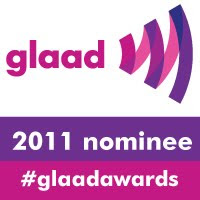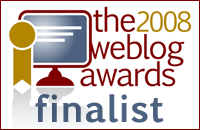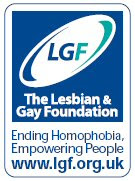

 HIV positive activists and allies stage a surprise public protest at the 3rd Latin American and Caribbean Forum on HIV/AIDS at the November 11th closing ceremony in El Salvador; Bottom photo: Elias Antonio Saca, President of Costa Rica and Abel Pacheco, President of El Salvador hurry off the stage to avoid answering protesters.
HIV positive activists and allies stage a surprise public protest at the 3rd Latin American and Caribbean Forum on HIV/AIDS at the November 11th closing ceremony in El Salvador; Bottom photo: Elias Antonio Saca, President of Costa Rica and Abel Pacheco, President of El Salvador hurry off the stage to avoid answering protesters.After more than 10 years of work for an AIDS-prevention agency in the United States, another December 1st rolls around and you become a little disengaged from all the World AIDS Day awareness events and press releases. You grow weary when your own agency organizes a Latino AIDS Awareness Day event and includes women, youth and faith based initiatives in the day's activities but neglects the gay community - at least in its promotional materials and workshop planning (but secretly suspect that all those faith-based prevention funds coming down from the government have something to do with it as well as the involvement of the not so gay friendly Hispanic Federation). You remain HIV negative but see friends become HIV positive over time, you remember those friends who have passed away (Antonio Hernandez, you are always in my heart!) and you pray that the current right-wing assault on anything gay is just a last desperate all-out attack which will fall on its empty logic sooner than later (it's a major barrier to develop prevention messages that are based on increasing gay men's self worth as a means to prevent HIV infection and transmission - and actually work - rather than HIV prevention based on making gay men feel scared or pathologized)
So when there are things that give you a bit of hope and give you reason to continue working in the field, it's better to share, no?
From November 8th through the 11th of this year, El Salvador hosted the 3rd Latin American and Caribbean Forum on HIV/AIDS (organized by CONCASIDA). The only major North American coverage I saw of the event was articles highlighting the presence of actress Ashley Judd, yet, over "3,000 politicians, police chiefs, doctors and activists" met at a time when key questions are being raised about the availability of HIV/AIDS treatments throughout Latin America and the impact of free trade agreements - which the United States have been aggressively pursuing to their economic benefit and include stricter regulations - and increasing barriers - to access to HIV meds in the region.
It is not at all easy to keep up with complex governmental trade treaties, much less to be at the table when concessions are made or deals are brokered between governments. And, though I am privy to an e-mail list that is amazingly up to date on the impact of these treaties on HIV prevention world-wide, the language used on the list is English which keeps most Latin American HIV activists in the dark (I know of no similar Spanish-language list).
So when I read news that a large group of HIV positive activists and allies interrupted a series of speeches by governmental leaders by walking into the convention center and holding banners questioning the trade treaties and shouted down some of the Central American presidents who were speaking on the podium, I though "Damn! Great for them!"
Unfortunately, local media such as La Prensa Grafica and El Diario de Hoy mostly disregarded the activists' demands and went as far as to call them misguided and quoted El Salvador government officials who did not waste time in denouncing the protests calling them politically slanted and orchestrated. La Prensa Grafica said that the government was even considering taking legal action against some of the protesters.
In a statement released by the protesters they said the following:
The protest at the closing day ceremony happened because a large number of participants such as ourselves were tired of so the posturing by not only the governmental authorities [present] but also the funding agencies and some individuals 'representing society and people living with HIV/AIDS' who completely forgot how they reached their positions.They also denied that any one person had manipulated them or orquestrated the protest, or that the protesters were affiliated with a specific political group. They did express fear that there'd be efforts to take action against them due to the public nature of the protest and reminded journalists that in a free democracy they should have the right to protest.
Fortunately, renowned AIDS activist Richard Stern, from the Costa Rica-based Augua Buena Association saw the government response as what it was: An attempt to dissuade public criticism of their HIV policies and intimidate activists and quickly moved to secure international support for the protesters.
Thanks to Richard, UNAIDS released the following statement on November 19th, 2005:
UNAIDS recognizes the efforts made by the Salvadorian National AIDS Programme and all the other organizers of the FORO/CONCASIDA2005 conference and the High Level Presidential Forum on HIV/AIDS for these highly successful events. We believe that the Conference will result in a stronger commitment to HIV/AIDS by all the stakeholders in Latin America and the Caribbean.So, to all those HIV/AIDS activists who were corageous enough to raise their voices and show their faces in demanding access to treatments for Latin America and the Caribbean, my hat goes off to you! On World AIDS Day, your actions are what keeps me going in this field.
AIDS is a shared concerned and all partners need to make their contribution in order to ensure good follow-up to the commitments made at the Conference ultimately leading towards a stronger response to the epidemic in the Region.
Civil society, and in particular people living with HIV/AIDS, are essential partners who are at the forefront of the AIDS response in all Latin American and Caribbean countries.
Their full engagement and energetic activism give voice to the voiceless and make an essential contribution towards pushing the agenda on key HIV treatment and prevention issues. In this context, building a true and open partnership between civil society and governmental partners is a key strategy for an effective response to the epidemic.
An open, considerate and fruitful dialogue between civil society, governmental and all other stakeholders in a country, where all partners listen to one another and each is able to express their views and opinions in a respectful way and without fears of consequences for their safety and well being, is the only way to ensure that our collective response to the HIV/AIDS epidemic moves successfully forward. UNAIDS is committed to play its role in facilitating such dialogue and strengthening partnerships throughout the Region.
Many contacts among PLWA, Civil Society, Government representatives, international organizations and others have being done by the UNAIDS regional office since yesterday, and it seems to us that the situation in the region is taking the route of dialogue. It is our understanding that meaningful conversation have started between the Government, PLWA and civil society.
Best regards,
Nancy Andrade-Castro
UNAIDS
Directora Regional a.i














No comments:
Post a Comment